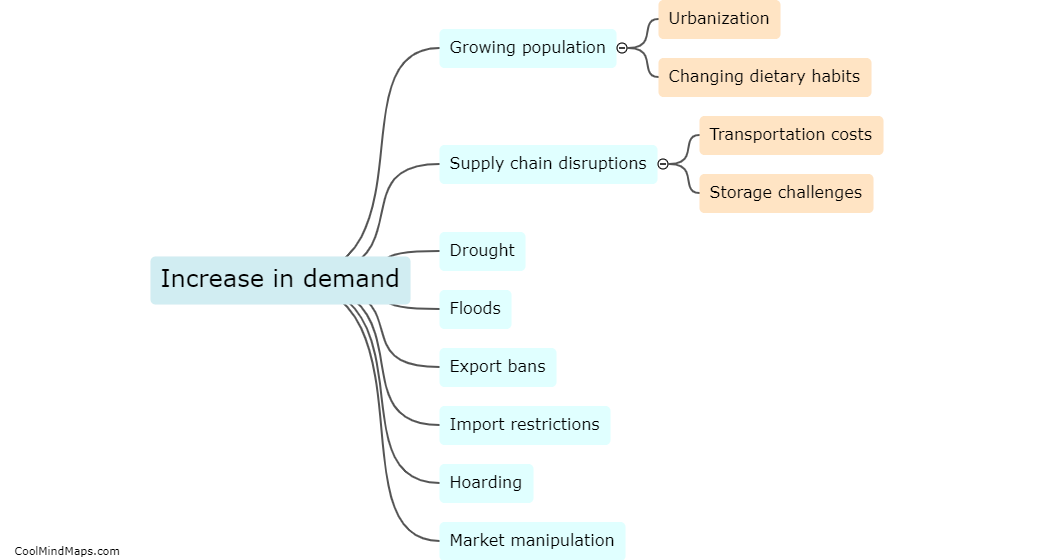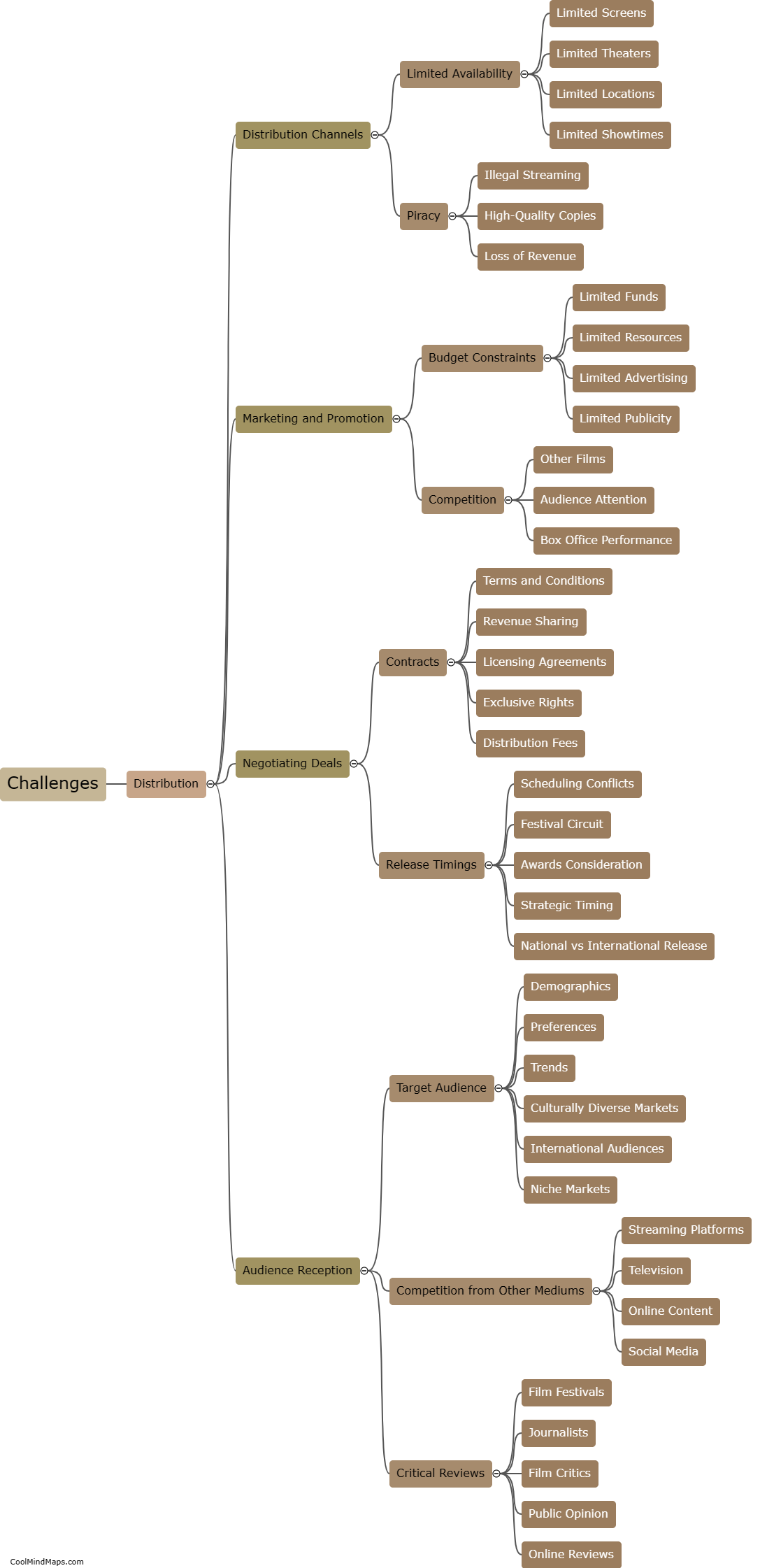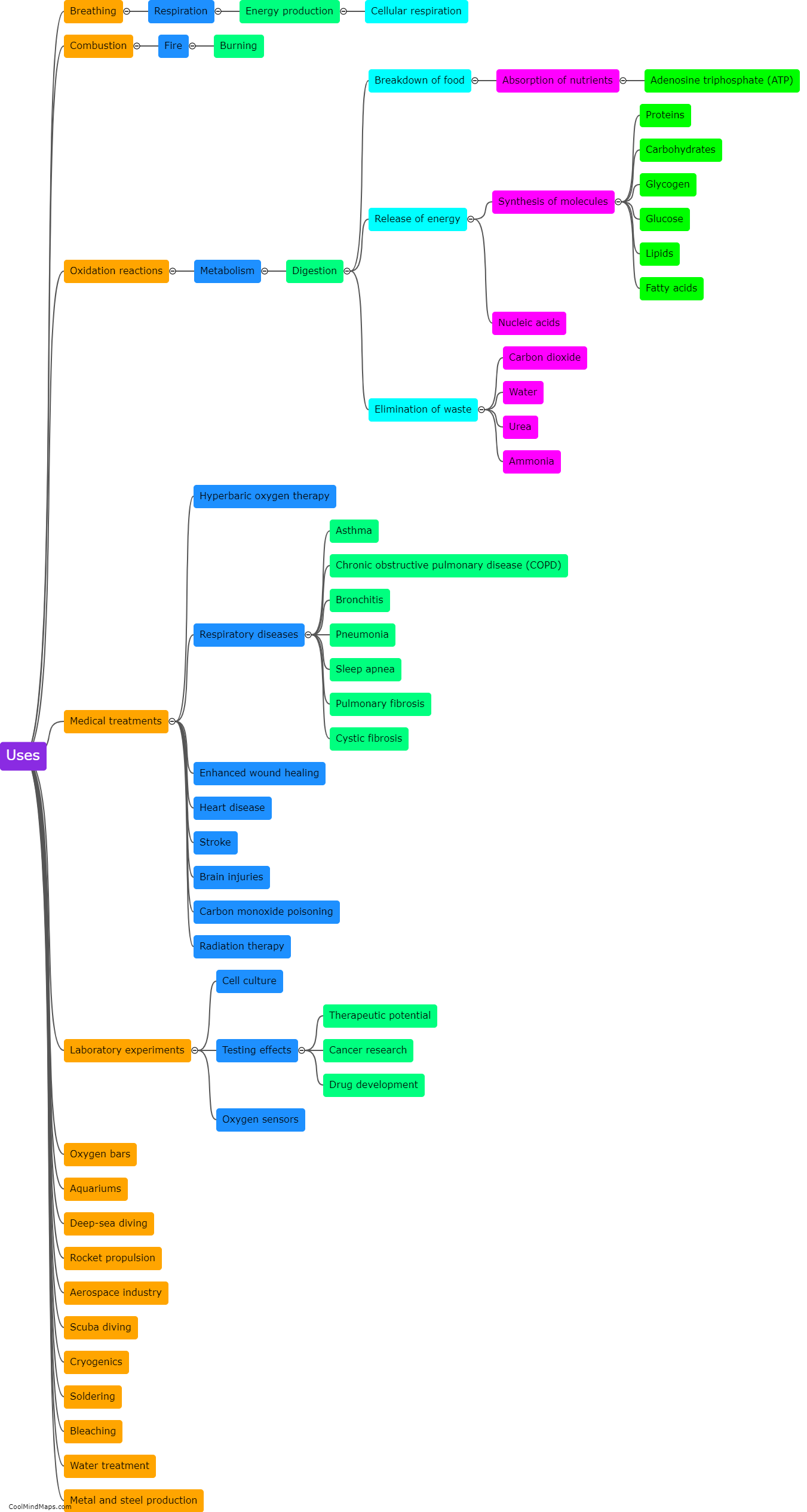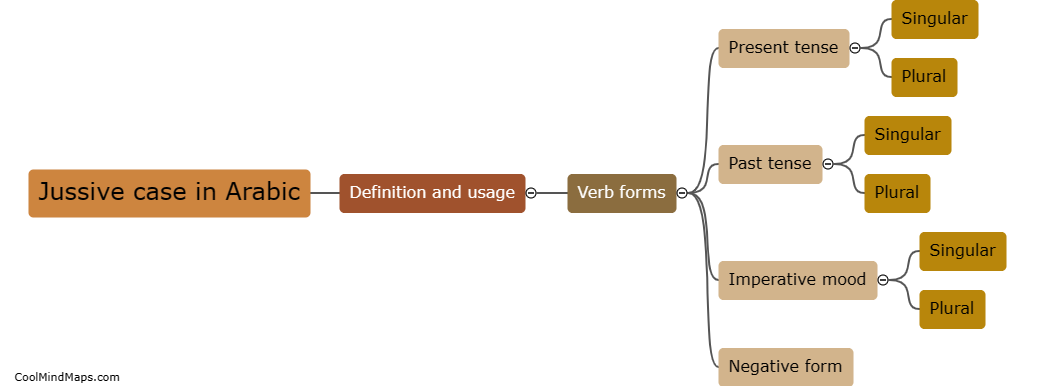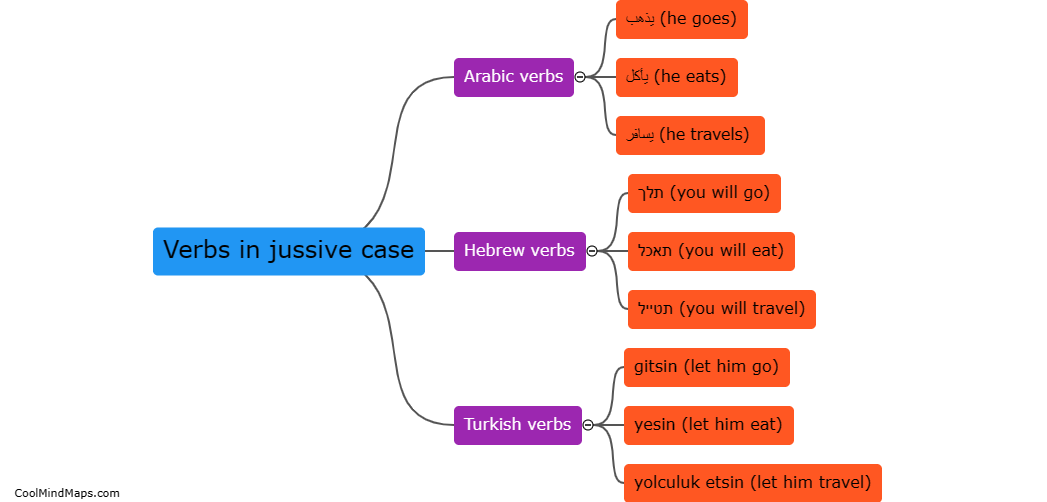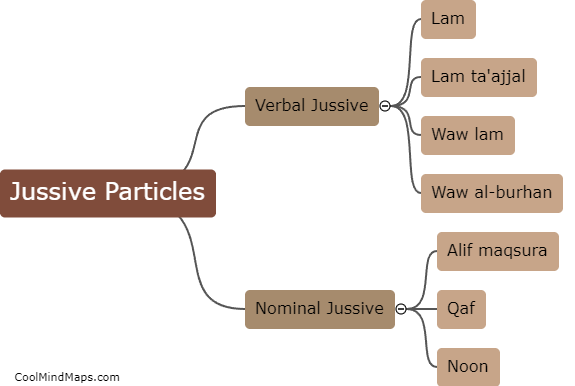What are some examples of jussive particles in Arabic?
In Arabic, jussive particles are often used to express wishes, commands, or prohibitions. Some examples of jussive particles include the word "لا" (la), which is used to negate commands or express prohibitions, such as "لا تأكل" (la ta'kul) meaning "don't eat." Another example is the particle "ليس" (laysa), which is used to express the negation of a clause or command, for instance, "ليس هناك طعام" (laysa hunak ta'am) meaning "There is no food." Additionally, the particle "ليت" (layta) is used to express a wish, like "ليتني أستطيع المساعدة" (laytanee astatee'a al-musa'ada) meaning "I wish I could help." These jussive particles play a crucial role in Arabic sentences to convey specific intentions and commands.

This mind map was published on 9 October 2023 and has been viewed 89 times.
